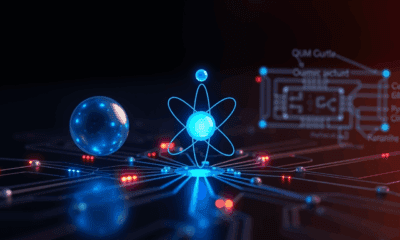While we try to keep things accurate, this content is part of an ongoing experiment and may not always be reliable.
Please double-check important details — we’re not responsible for how the information is used.
Animal Learning and Intelligence
“Revolutionizing Heart Monitoring with Nature-Inspired Wearable Tech”
When we move, it’s harder for existing wearable devices to accurately track our heart activity. But researchers found that a starfish’s five-arm shape helps solve this problem. Inspired by how a starfish flips itself over — shrinking one of its arms and using the others in a coordinated motion to right itself — scientists have created a starfish-shaped wearable device that tracks heart health in real time.

Animal Learning and Intelligence
Can Dogs See Through a Person’s Kindness? A Surprising Study Says No
Despite our strong belief in dogs’ ability to sense good from bad in people, new research shows they may not actually judge human character, at least not in the way we think. When dogs watched how humans treated other dogs, they didn’t favor the kinder person later. Even direct interactions didn’t sway their behavior. The study suggests dogs’ reputational judgments might be more nuanced—or harder to study—than we realized.
Animal Learning and Intelligence
The Generous Giants: Unpacking the Mystery of Killer Whales Sharing Fish with Humans
Wild orcas across four continents have repeatedly floated fish and other prey to astonished swimmers and boaters, hinting that the ocean’s top predator likes to make friends. Researchers cataloged 34 such gifts over 20 years, noting the whales often lingered expectantly—and sometimes tried again—after humans declined their offerings, suggesting a curious, relationship-building motive.
Animal Learning and Intelligence
“Breathe with Identity: The Surprising Link Between Your Breath and You”
Scientists have discovered that your breathing pattern is as unique as a fingerprint and it may reveal more than just your identity. Using a 24-hour wearable device, researchers achieved nearly 97% accuracy in identifying people based solely on how they breathe through their nose. Even more intriguingly, these respiratory signatures correlated with traits like anxiety levels, sleep cycles, and body mass index. The findings suggest that breathing isn t just a passive process it might actively shape our mental and emotional well-being, opening up the possibility of using breath training for diagnosis and treatment.
-

 Detectors10 months ago
Detectors10 months agoA New Horizon for Vision: How Gold Nanoparticles May Restore People’s Sight
-

 Earth & Climate11 months ago
Earth & Climate11 months agoRetiring Abroad Can Be Lonely Business
-

 Cancer11 months ago
Cancer11 months agoRevolutionizing Quantum Communication: Direct Connections Between Multiple Processors
-

 Albert Einstein11 months ago
Albert Einstein11 months agoHarnessing Water Waves: A Breakthrough in Controlling Floating Objects
-

 Chemistry10 months ago
Chemistry10 months ago“Unveiling Hidden Patterns: A New Twist on Interference Phenomena”
-

 Earth & Climate11 months ago
Earth & Climate11 months agoHousehold Electricity Three Times More Expensive Than Upcoming ‘Eco-Friendly’ Aviation E-Fuels, Study Reveals
-

 Agriculture and Food11 months ago
Agriculture and Food11 months ago“A Sustainable Solution: Researchers Create Hybrid Cheese with 25% Pea Protein”
-

 Diseases and Conditions11 months ago
Diseases and Conditions11 months agoReducing Falls Among Elderly Women with Polypharmacy through Exercise Intervention





























